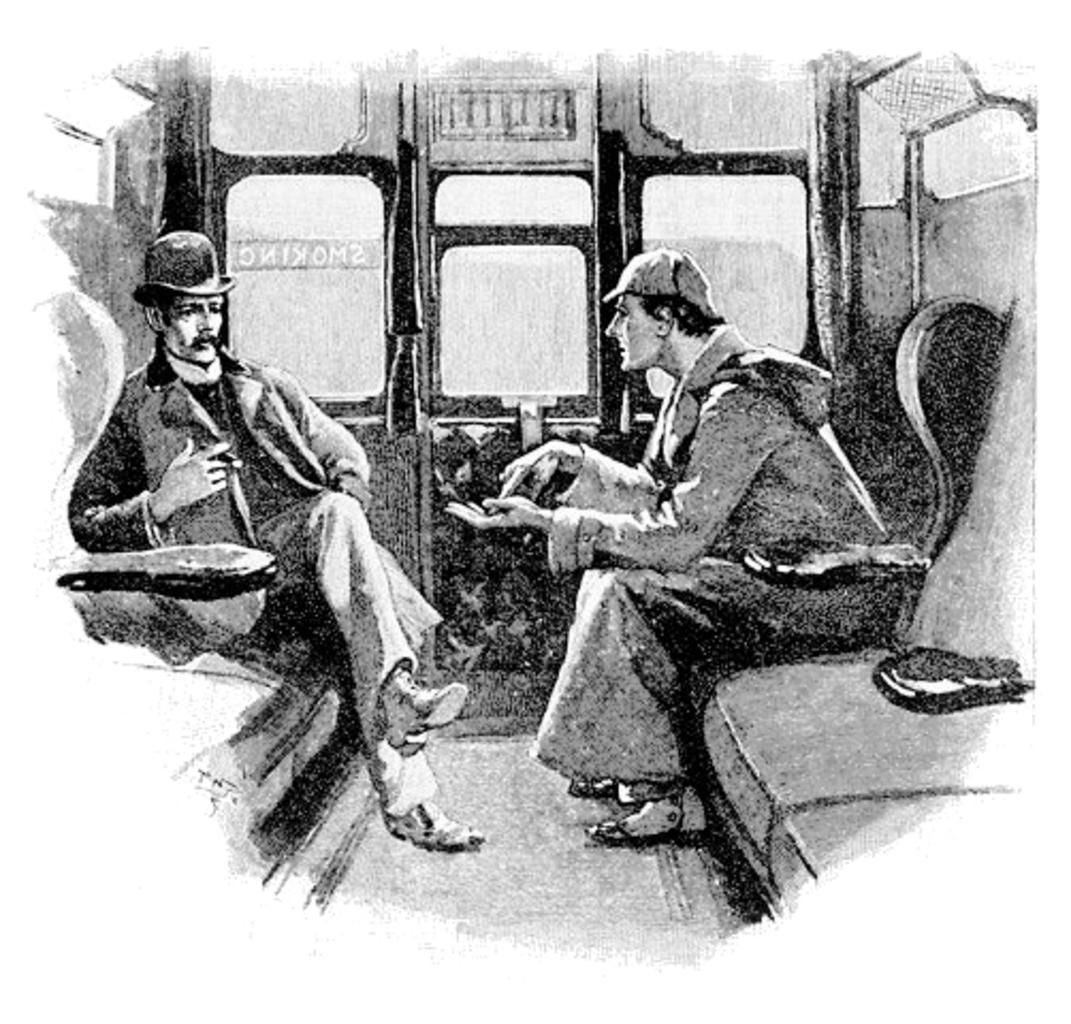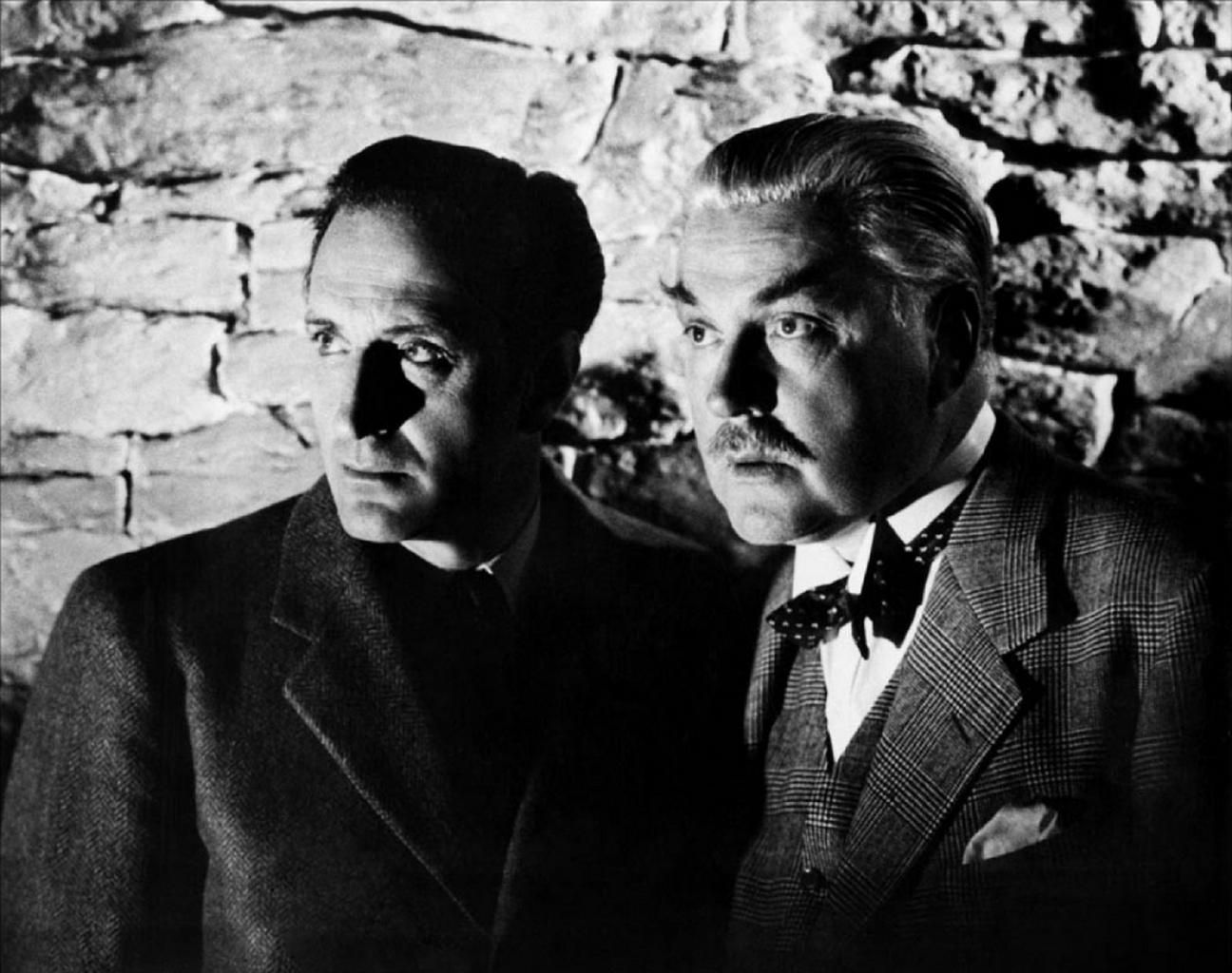
10 | Sherlock Holmes and John Watson: Partners in Crime Solving
"My name is Sherlock Holmes. It is my business to know what other people do not know."
— Arthur Conan Doyle, The Adventure of the Blue Carbuncle
Without a doubt, Sherlock Holmes is iconic. He has been the forerunner of many great detectives that followed. Perhaps the only thing more iconic is his friendship with his long-time crime-solving partner, John Watson. Over the course of the famous detective's fictional life, his story has been told numerous times and in various ways, but the Holmes and Watson duo has persevered through time to set one of the strongest examples of friendship.
"You see, but you do not observe."
— Arthur Conan Doyle, A Scandal in Bohemia
Inspired by one of Sir Arthur Conan Doyle's university professors, Sherlock Holmes shares his expert observation and deduction skills with the professor's method of diagnosing a patient. But as brilliant as Holmes is, the audience might not understand it without Watson's help. Not only serving as a valuable narrator to the audience, but Watson also tempers some of Holmes' more eccentric traits, making him more approachable. Where Holmes is the logical one of the pair, Watson is the emotional one. Often he serves as the missing link in cases where Holmes cannot connect to his subjects' psyche because he doesn't consider it significant enough. When he is 'examining' the victim's bodies in some eccentric way or talking too harshly to the victim's relatives in the show, John often steps in to soften his words.
"You have a grand gift for silence, Watson. It makes you quite invaluable as a companion."
— Arthur Conan Doyle, The Man with the Twisted Lip

Since the beginning of their acquaintance, Holmes and Watson like to treat their cases like an elaborate game. They challenge each other to come to the right conclusion. The BBC series shows the trajectory of Watson's growth as Holmes' companion. He learns to deduce facts just as Holmes and is often sent in his place to observe crime scenes. He is also invaluable to Holmes who likes to talk his thought process out loud, bouncing ideas off of another person. When Watson starts to write about his adventures with Holmes, the latter secretly enjoys reading about the cases from another perspective though he considers it sensationalist. In the show, he comments about John's blog, deriding it for not stating enough details about the crime solving process.
"Watson. Come at once if convenient. If inconvenient, come all the same."
— Arthur Conan Doyle, The Adventure of the Creeping Man
Watson is the only real connection Holmes has. He starts as a working companion but quickly becomes Holmes' closest friend. He is a friend, a confidante, a companion. He serves as a foil to Holmes, showing how Holmes often lacks humanity but also brings more humanity to him. It is through him that we learn to appreciate Holmes' skills and through his influence that Holmes learns to approach things with more sensitivity. On the other hand, Holmes also teaches him to be more rational. This is how they balance each other out. Despite their myriad problems with each other, resulting from their differing personalities, they still appreciate each other and always have each other's back.
At the end of the first season of Sherlock (the BBC adaptation) when Moriarty straps an explosive to John, Sherlock does not do anything during the confrontation that would lead Moriarty to harm John. But not all their moments of camaraderie are so dire. When his brother Mycroft meets John, Sherlock and John later share jokes about Mycroft's predilection for mystery and intrigue.
Differences between the original works and adaptions
While the original works portray Sherlock Holmes as an arrogant individual who regards himself above everyone including John Watson, the two adaptations in discussion here, the BBC tv series with Benedict Cumberbatch and the movie adaptations starring Robert Downey Jr., temper this arrogance with Watson's ready acceptance of Holmes' skills as skills and nothing more. These depictions of Watson know their own place in the world and stand up for themselves against Holmes' machinations.
Holmes's brother, Mycroft Holmes appears in only two stories, but his role is much more prominent in the BBC tv series adaptation. What remains the same is the intelligence he shares with his brother, but the tv adaptation explores his character in much more depth.
Even though the catchphrase 'Elementary, my dear Watson' is famously attributed to Holmes, he never said it in the original works. He did use 'elementary' and 'my dear Watson' quite a few times, but never together. On the other hand, in several adaptations, this catchphrase is used to establish Holmes's identity.

Fun facts
- Sherlock was originally called Sherrinford until the author changed it, probably inspired by well-known cricketers, Sherwin and Shacklock
- The first Sherlock Holmes story, A Study in Scarlet, was rejected by several publishers
- Sherlock Holmes is the most filmed (human) character with over 226 adaptations
- The author tried to kill his character because he was bored after two years of writing about Sherlock Holmes, but public outcry made him resurrect the famous detective
- Queen Victoria was a Sherlock fan!
Question
What is your favorite detail of this duo?
What is the best remake according to you?
Bạn đang đọc truyện trên: Truyen247.Pro